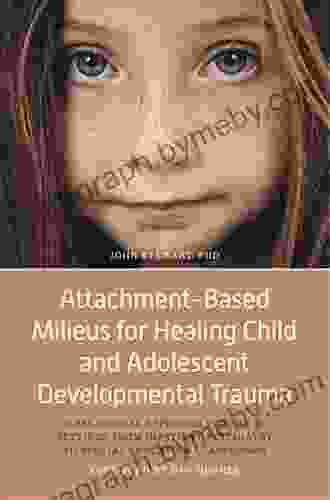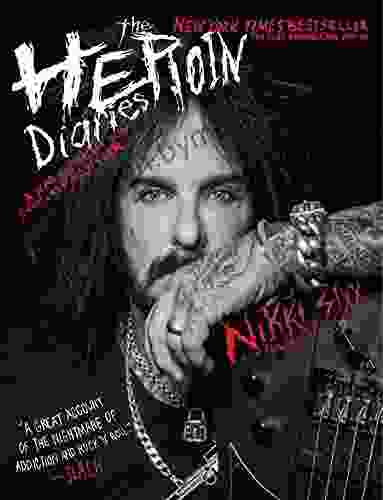The field of mental health care is constantly evolving, seeking innovative approaches to provide effective and compassionate treatment. One promising approach that has gained increasing recognition is the Relational Approach.
5 out of 5
| Language | : | English |
| File size | : | 1632 KB |
| Text-to-Speech | : | Enabled |
| Screen Reader | : | Supported |
| Enhanced typesetting | : | Enabled |
| Word Wise | : | Enabled |
| Print length | : | 218 pages |
This comprehensive guide delves into the principles, benefits, and practical applications of the Relational Approach in various settings, from inpatient psychiatry to specialized treatment. It aims to equip clinicians with the knowledge and skills to create meaningful and transformative therapeutic experiences for their clients.
Principles of the Relational Approach
The Relational Approach is founded on the belief that relationships are central to human well-being and recovery. It emphasizes empathy, respect, and collaboration as the foundation of effective therapy.
- Empathy: The ability to understand and share the feelings of others is crucial for creating a safe and supportive therapeutic environment.
- Respect: Treating clients with dignity and respect fosters trust and empowers them to take an active role in their recovery.
- Collaboration: The Relational Approach views therapy as a partnership between the clinician and client, where both perspectives are valued and integrated into the treatment plan.
Benefits of the Relational Approach
Numerous studies have demonstrated the benefits of the Relational Approach in mental health care.
- Improved therapeutic alliance: The emphasis on empathy and respect strengthens the bond between clinician and client, leading to a more positive and collaborative therapeutic relationship.
- Enhanced treatment outcomes: The strong therapeutic alliance fosters trust and motivation, improving treatment adherence and reducing the likelihood of relapse.
- Reduced burnout: By promoting self-care and supervision, the Relational Approach helps clinicians avoid burnout and maintain their well-being.
Applications in Inpatient Psychiatry
In inpatient psychiatry, where clients may experience acute mental health crises, the Relational Approach provides a stabilizing and therapeutic framework.
- Crisis de-escalation: Empathy and respect can help de-escalate crises by creating a calming and reassuring atmosphere.
- Symptom management: The focus on collaboration empowers clients to manage their symptoms and develop coping mechanisms.
- Treatment planning: The Relational Approach facilitates the development of individualized treatment plans that address the client's unique needs and goals.
Applications in Specialized Treatment
The Relational Approach is also applicable in specialized treatment settings, such as eating disFree Download clinics or substance abuse treatment centers.
- Eating disFree Download recovery: The emphasis on respect and collaboration helps clients overcome their distorted body image and develop healthy eating habits.
- Substance abuse treatment: The strong therapeutic alliance supports clients in building coping skills, managing cravings, and preventing relapse.
- Trauma therapy: The Relational Approach provides a safe and supportive environment for survivors of trauma to process their experiences and heal from their wounds.
Implementation in Clinical Practice
Implementing the Relational Approach in clinical practice involves several key strategies:
- Active listening: Engage fully with clients, paying attention to their verbal and non-verbal cues, and reflecting their feelings back to them.
- Empathetic validation: Acknowledge and validate clients' experiences, even if you don't agree with their perspectives.
- Collaborative goal setting: Involve clients in setting realistic and meaningful treatment goals.
- Self-disclosure: When appropriate, share relevant personal experiences to demonstrate empathy and create a more authentic connection.
Evidence-Based Support
The Relational Approach is supported by a growing body of evidence. Studies have shown:
- Strong correlations between the Relational Approach and improved therapeutic alliance and treatment outcomes
- Reduced rates of burnout among clinicians using the Relational Approach
- Positive feedback from clients regarding their experiences with Relational Approach therapists
The Relational Approach offers a transformative paradigm for mental health care, fostering empathy, respect, and collaboration in every therapeutic encounter. By adopting this approach, clinicians can create meaningful and transformative experiences for their clients, leading to improved treatment outcomes, reduced burnout, and a more fulfilling profession.
This guide provides a comprehensive overview of the Relational Approach, its principles, benefits, and practical applications. By integrating these principles into their practice, clinicians can revolutionize the way they provide mental health care and make a lasting difference in the lives of their clients.

























































































